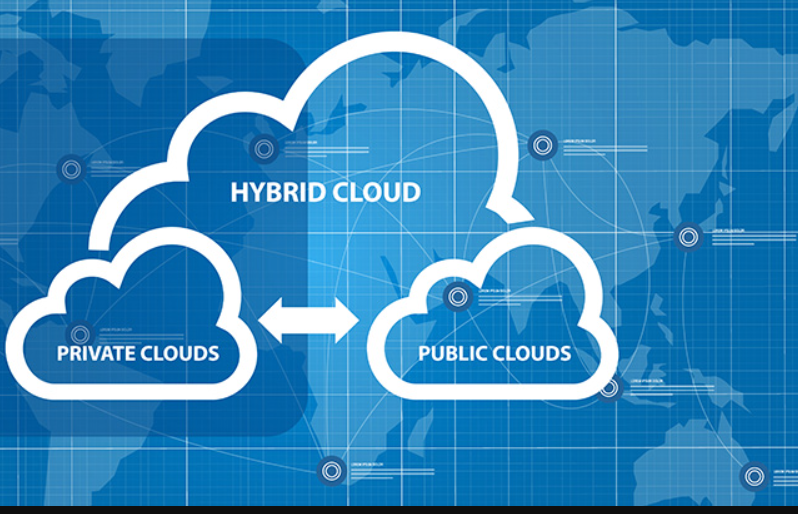Key Takeaways:
- Hybrid cloud solutions combine private and public cloud environments to provide flexible, scalable, and cost-effective IT infrastructure.
- Businesses benefit from improved data security, streamlined operations, and enhanced disaster recovery capabilities.
- Understanding the advantages of hybrid cloud solutions can help businesses make informed decisions regarding their IT strategies.
Introduction
Businesses continuously look for new and creative methods to improve their IT infrastructure as we go farther into the digital age. The hybrid cloud is one of the top options that is becoming more and more popular. Hybrid cloud solutions, which combine the benefits of public and private cloud environments, give companies the cost-effectiveness, scalability, and flexibility they need to remain competitive in the quick-paced market of today. Companies like OneCloud provide comprehensive platforms for businesses adopting hybrid cloud models effectively.
What Is Hybrid Cloud?
The hybrid cloud model integrates public cloud services with private cloud infrastructure and on-premises resources. This approach allows businesses to balance accessibility, security, and control over their data and applications. By blending these environments, organizations can dynamically allocate workloads and resources based on their specific needs, optimizing performance and cost-efficiency.
Benefits of Hybrid Cloud Solutions
Enhanced Flexibility and Scalability
Unmatched flexibility is offered by hybrid cloud solutions, which let companies quickly grow their operations in response to shifting demand. Organizations can optimize their resource allocation by using the public cloud for non-sensitive jobs and the private cloud for crucial processes.
Improved Data Security
Data security is a paramount concern for businesses of all sizes. Hybrid cloud models enhance security by enabling businesses to store sensitive information in private clouds while taking advantage of the public cloud’s scalability for less critical data. This strategy guarantees regulatory compliance while reducing the possible risks connected to data breaches.
Streamlined Operations
Integrating hybrid cloud solutions can streamline business operations by reducing the complexities of managing multiple IT environments. Improved operational efficiency and the ability to concentrate on core business operations instead of continually worrying about IT infrastructure maintenance help businesses improve business continuity during unforeseen disruptions.
Real-Life Examples of Hybrid Cloud Implementation
Consider a retail company that handles massive spikes in web traffic during seasonal sales. By utilizing a hybrid cloud model, the company can manage the high traffic on their public cloud while keeping their critical operations on a private cloud for security. Another example is the healthcare industry, where hybrid cloud solutions manage sensitive patient data securely while accessing advanced public cloud analytics to improve healthcare outcomes.
Choosing the Right Hybrid Cloud Provider
It is crucial to select a suitable hybrid cloud provider. Factors to consider include the provider’s security measures, scalability options, and integration capabilities with existing IT infrastructure. Conducting thorough research and seeking recommendations can help in making an informed decision.
Common Challenges and Solutions
Data Security Concerns
While hybrid cloud models offer increased security, they can still pose risks if managed incorrectly. Implementing robust security protocols and continuously monitoring the cloud environment can mitigate potential threats. Establish comprehensive security policies to ensure the safety of all data.
Integration Issues
Integrating a hybrid cloud system with existing on-premises infrastructure can be challenging. Businesses should work closely with cloud providers to ensure smooth integration and minimal disruption. Proper planning and phased implementation can help address these challenges effectively.
Future Trends in Hybrid Cloud
Trends in the hybrid cloud space include a rise in the application of machine learning (ML) and artificial intelligence (AI) to enhance cloud management. Additionally, by lowering latency and enhancing performance, edge computing innovations should support hybrid cloud solutions.
Conclusion
Hybrid cloud solutions are shaping the future of business IT by providing a flexible, scalable, and secure environment for managing diverse workloads. Organizations are becoming increasingly adept at navigating the complexity of contemporary IT ecosystems and accomplishing their strategic objectives as more realize the advantages of hybrid cloud models. In an increasingly digital world, utilizing hybrid cloud technologies may greatly enhance productivity, security, and overall performance. This will spur growth and innovation.














